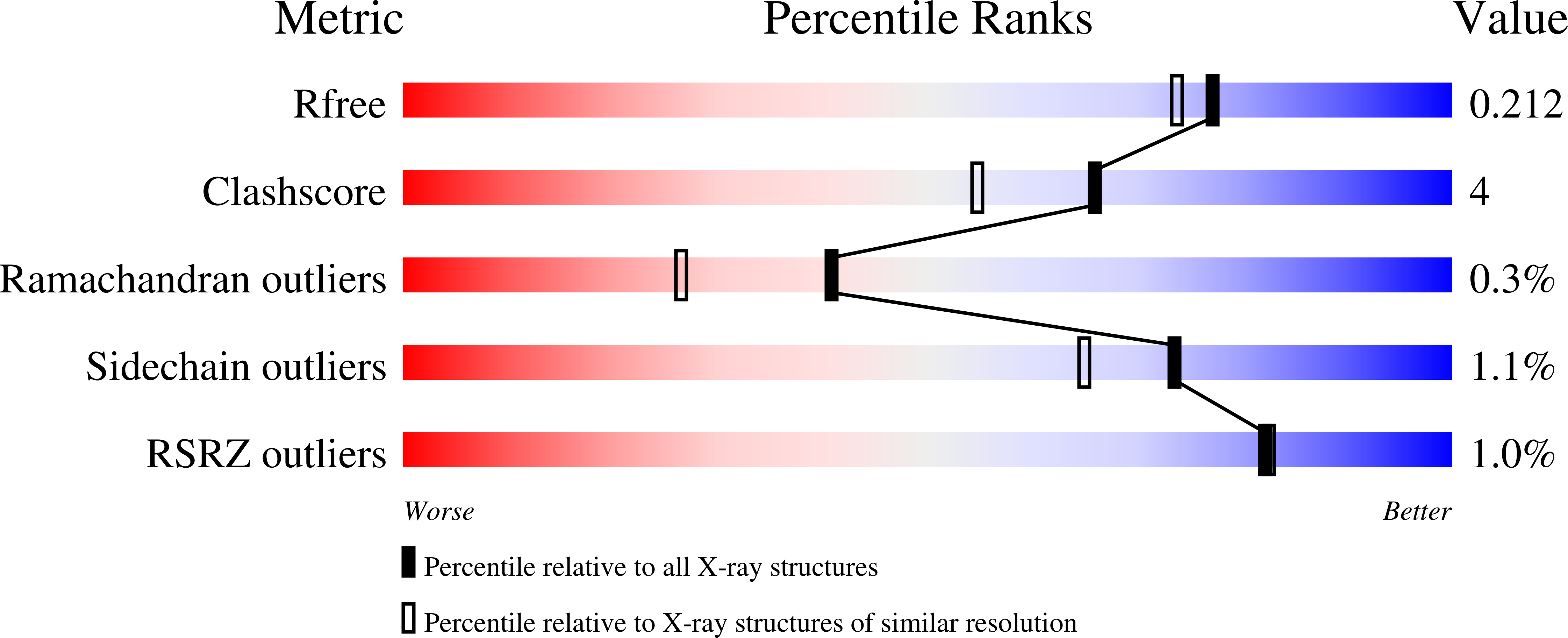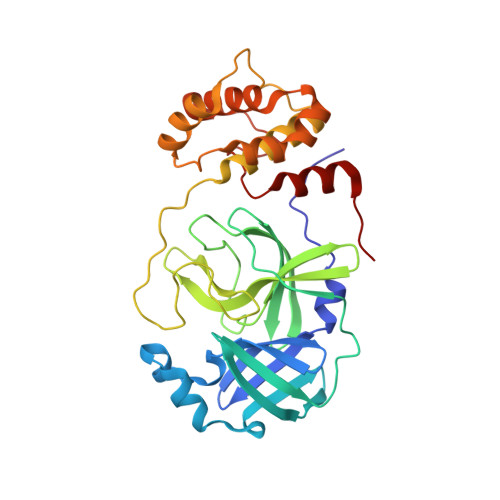An orally bioavailable SARS-CoV-2 main protease inhibitor exhibits improved affinity and reduced sensitivity to mutations.
Westberg, M., Su, Y., Zou, X., Huang, P., Rustagi, A., Garhyan, J., Patel, P.B., Fernandez, D., Wu, Y., Hao, C., Lo, C.W., Karim, M., Ning, L., Beck, A., Saenkham-Huntsinger, P., Tat, V., Drelich, A., Peng, B.H., Einav, S., Tseng, C.K., Blish, C., Lin, M.Z.(2024) Sci Transl Med 16: eadi0979-eadi0979
- PubMed: 38478629
- DOI: https://doi.org/10.1126/scitranslmed.adi0979
- Primary Citation of Related Structures:
7SET, 7SF1, 7SF3, 7U92, 7UUG, 7UUP, 8EZV, 8EZZ, 8F02, 8F2C, 8F2D - PubMed Abstract:
Inhibitors of the severe acute respiratory syndrome coronavirus 2 (SARS-CoV-2) main protease (M pro ) such as nirmatrelvir (NTV) and ensitrelvir (ETV) have proven effective in reducing the severity of COVID-19, but the presence of resistance-conferring mutations in sequenced viral genomes raises concerns about future drug resistance. Second-generation oral drugs that retain function against these mutants are thus urgently needed. We hypothesized that the covalent hepatitis C virus protease inhibitor boceprevir (BPV) could serve as the basis for orally bioavailable drugs that inhibit SARS-CoV-2 M pro more efficiently than existing drugs. Performing structure-guided modifications of BPV, we developed a picomolar-affinity inhibitor, ML2006a4, with antiviral activity, oral pharmacokinetics, and therapeutic efficacy similar or superior to those of NTV. A crucial feature of ML2006a4 is a derivatization of the ketoamide reactive group that improves cell permeability and oral bioavailability. Last, ML2006a4 was found to be less sensitive to several mutations that cause resistance to NTV or ETV and occur in the natural SARS-CoV-2 population. Thus, anticipatory design can preemptively address potential resistance mechanisms to expand future treatment options against coronavirus variants.
Organizational Affiliation:
Department of Neurobiology, Stanford University, Stanford, CA 94305, USA.















